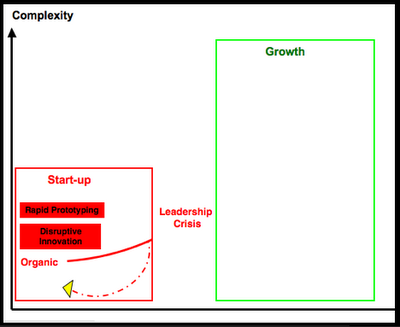Reports from the Knowledge Labs about our recent findings, research topics, and interviews with lifestyle leaders who are creating their own futures.
|
|
| |
How to stimulate your own powers of foresight. Consider the following thought provokers. Ask yourself, in these categories what are the brand new trends and forces? Which are the ones growing in importance? Which current forces are loosing their steam? Which have peaked or are reversing themselves? Which are the "wildcards" about to disrupt us in the future? POLITICAL AND TECHNICAL thought for food: Electronics, Materials, Energy, Fossil, Nuclear, Alternative, Other, Manufacturing (techniques), Agriculture, Machinery and Equipment, Distribution, Transportation (Urban, Mass, Personal, Surface, Sea, Subsurface, Space), Communication (Printed, Spoken, Interactive, Media), Computers (Information, Knowledge, Storage & Retrieval, Design, Network Resources), Post-Cold War, Third World, Conflict (Local, Regional, Global), Arms Limitation, Undeclared Wars, Terrorism, Nuclear Proliferation, Weapons of Mass Destruction, Governments (More/Less Power and Larger or Smaller Scale), Taxes, Isms: Nationalism, Regionalism, Protectionism, Populism, Cartels, Multinational Corporations, Balance of Trade, Third Party Payments, Regulations (OSHA, etc.) Environmental Impact, U.S. Prestige Abroad. SOCIAL AND ECONOMIC Food for thought:
Labor Movements, Unemployment / Employment Cycles, Recession, Employment Patterns, Work Hours / Schedules, Fringe Benefits, Management Approaches, Accounting Policies, Productivity, Energy Costs, Balance of Payments, Inflation, Taxes, Rates of Real Growth, Distribution of Wealth, Capital Availability and Costs, Reliability of Forecasts, Raw Materials, Availability and Costs, Global versus National Economy, Market versus Planned Economies, Generations: Y, X, Boomers, Elderly, Urban vs. Rural Lifestyles, Affluent vs. Poor, Neighborhoods and Communities, Planned or Organic Growth.
Got Knowledge?
|
|
| |
|
|
|
|
The Journal of 2020 Foresight
|
|
| |
|
Friday, August 18, 2006

Leadership Crisis: Bonking into the Closed Garage Door
Chapter Four: The Tribal Territories
By Steve Howard, CKO
The Knowledge Labs
Table of Contents
Chapter One: Basecamp
Chapter Two: The Ridge
Chapter Three: The Outpost
Chapter Four: The Tribal Territories
“She was dreaming about a high school play…She was onstage. There was a big cardboard house on the stage, looked just like the Double E. There was a light coming out of the window where Sun’s window was. There was a yellow light coming out and it shone down on her on the stage. Grandpa was sitting on the porch in his rocking char. On the other side of the stage there was a cardboard jail. Jed was sitting there talking to Officer Carmichael. Sun’s cat walked across the stage.”
Neil Young & Crazy Horse “Greendale”
DOUBLE NICKEL RANCH. Early application breakthroughs delivered by the joint collaboration between the two start-up Agent talent tribes -- “Breakpoint Inventors” and “Commercial Innovators” -- generate the dramatic competitive advantage that visionaries seek.
J2020F: But, it’s not all downhill from there, right?
Explorer: Unless you count falling into the chasm between start-up and early growth stages the kind of downhill you favor.
J2020F: Not hardly. What’s the typical scenario for the “garage start-ups”?
Explorer: Theirs is a tricky proposition. If they come up with a discontinuous technology whose sole benefit is to lower cost and improve productivity within a well-worn application arena, they have essentially an unmarketable opportunity.
J2020F: Why?
Explorer: The reason is that conservative consumers – the mass market -- simply will not tolerate “paradigm shock,” nor will they invest in helping vendors reduce that shock over time.
J2020F: They follow the herd and won’t abandon a tried and true approach, right? Buzz equates to career or customer risk in their minds?
Explorer: Right. The conservatives only buy into a new technology after the pragmatists, who in turn only buy new technology when it can give them significant breakthroughs in workflows, have vetted it.
J2020F: So, not every start-up makes it to the next stage.
Explorer: The longer it takes to convert visionary influence into early pragmatist orders tests the start-up’s capacity for survival.
J2020F: It has to generate enough cash initially, and then stabilize its business by eliminating cash flow problems?
Explorer: And that my friend is the crux of the problem. Meeting the challenge we’ve described is typically not the strong suit of the Agent tribes.
J2020F: So the start-up bonks? It can’t get out of the “garage”; it hits the closed garage door?
Explorer: Yes in the vast majority of the cases. Most of the time the start-up doesn’t find a market niche or can’t produce a viable product of service. But, it can still bonk when the fiercely independent “chief” fails to relinquish control and sets up the “Leadership Crisis.”
J2020F: What do enlightened chiefs do to bridge the crisis?
Got Knowledge?
Copyright ©2002 - 2006 Aarnaes Howard Associates. All rights reserved worldwide.
7:20 AM
|
|
| |
|
|
|